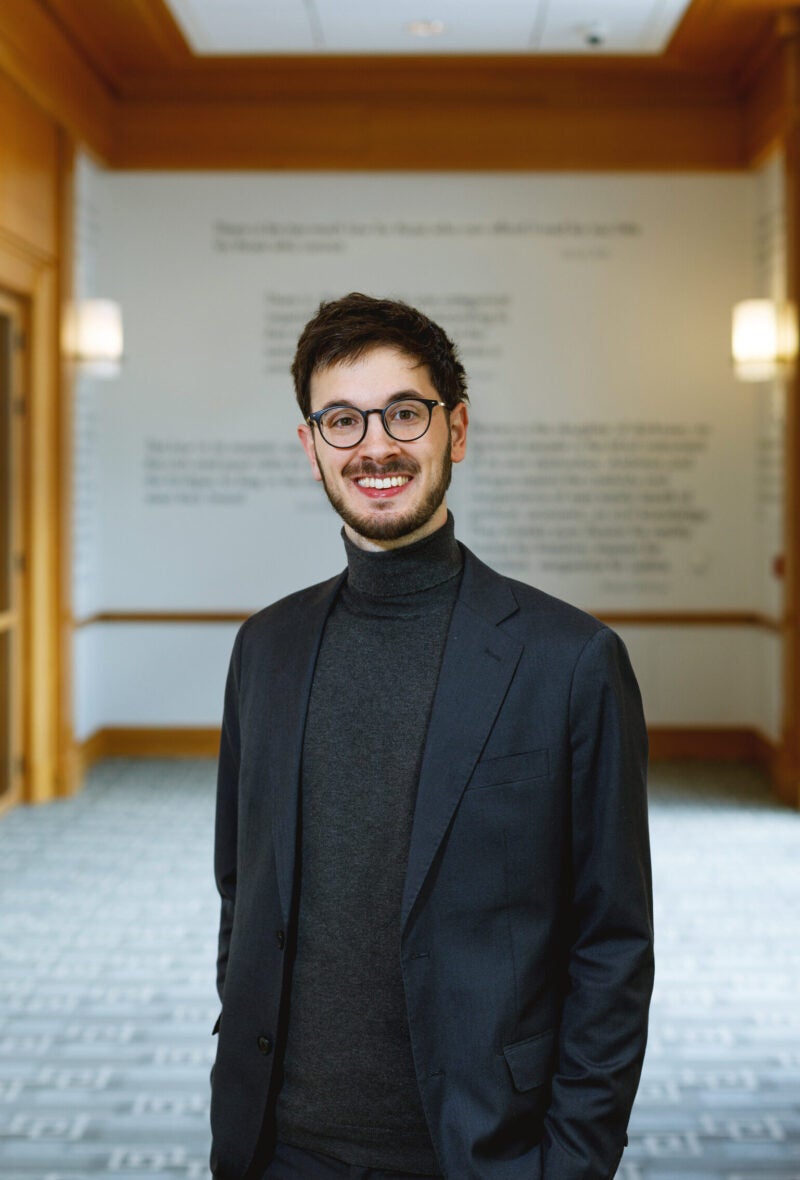For several years — during and after his law studies at the University of Buenos Aires — Francisco Balbín LL.M. ’23 worked in the Public Defender’s Office in that city. “I worked with minority groups, and people living in very vulnerable conditions, and I began to understand how the recognition of basic human rights had an impact on people’s lives,” he recalls. He also became involved in moot court competitions, which involved analyzing complex legal issues, examining a range of standards and treaties, and trying to make them fit a hypothetical case. Later, he spent 18 months at the Inter-American Commission on Human Rights, an autonomous organ under the Organization of American States that engages in the promotion and protection of human rights. Together, these experiences “made me feel that the path I needed to take in the future was in international human rights law,” Balbín says. As the 2023-2024 International Legal Studies Post-Graduate Fellow, he will bring his professional experience, and the knowledge he has gained at HLS, to his nine-month placement at the Inter-American Court of Human Rights.
Founded in 1979, the Inter-American Court is an autonomous international tribunal formed under the American Convention on Human Rights, a treaty that has been ratified by 25 countries in the Americas. The Court, which is located in San José, Costa Rica, exercises contentious jurisdiction, in which it adjudicates cases involving alleged breaches of the American Convention, and advisory jurisdiction, in which it interprets and clarifies provisions of the treaty. The Court can only decide cases involving states that both have ratified the American Convention and accepted the jurisdiction of the Court. During his placement, Balbín will be involved with contentious cases, drafting decisions and monitoring compliance with the Court’s decisions. He will also collaborate on advisory matters, analyzing and reporting on the questions brought before the Court.
He notes that his studies in law school have prepared him to understand the complexities of the Inter-American system, and the LL.M. program has given him “a broader and better understanding” of topics ranging from how the UN treaty bodies work, and different ways of enforcing international instruments and making parties responsible for the violation of human rights, to strategies to tackle gender inequality in the Americas.
“The Inter-American system covers one of the most unequal regions in the world, and that definitely has an impact on whether people can benefit from basic rights and freedoms,” Balbín observes. “We have other issues in this region — violence against women, discrimination against LGBTQI+ people, the lack of independence of the judiciary, and challenges in the exercise of political rights in certain countries.”
He is looking forward to addressing these difficult subjects and, when he is not working, to spending time exploring Costa Rica’s renowned national parks.
